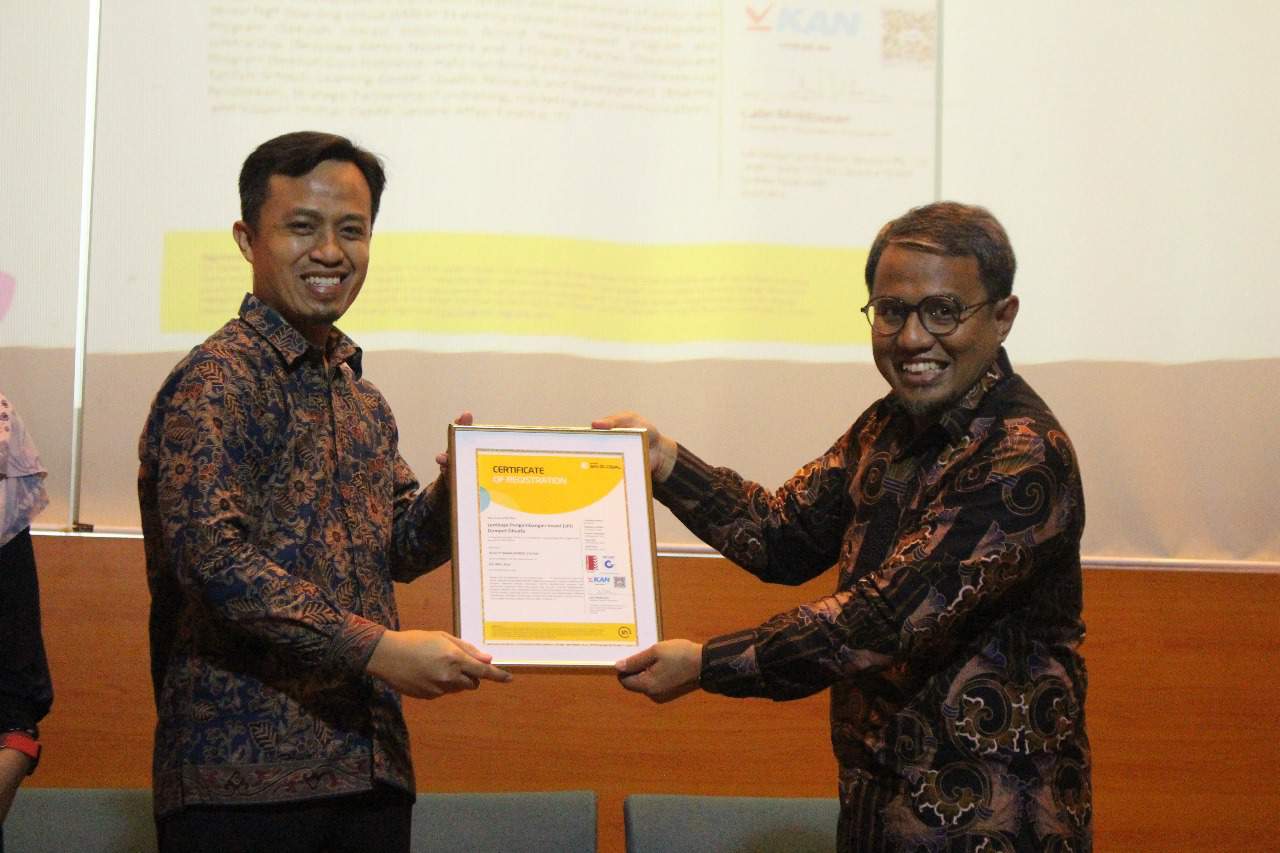JAKARTA — In honor of Teacher’s Day on November 25th, Dompet Dhuafa and the Jakarta State University Alumni Association (IKA UNJ) hosted Eduaction Fest 2023: Love for Teachers Day. Held at the Ki Hajar Dewantara Building at Jakarta State University (UNJ) on Friday (24/11/2023), the event, themed “Teachers, Robots, and Learning Ecosystems,” aimed to bridge the gap between educators and the latest advancements in educational technology.
The fest was graced by notable figures including Rina Fatimah, GM of the Education Division at Dompet Dhuafa; Juri Ardiantoro, Deputy IV of the Presidential Staff Office for Political Information and Communication, bringing insights from the governmental perspective; and Komarudin, the esteemed Rector of UNJ, who provided academic leadership. Highlights of the event included an Education Speech, an Award in memory of the late Conny R. Semiawan, the Launch of Master Teacher Indonesia, the Launch of the UNJ German Language Alumni Book, and the Launch of the UNJ Alumni Card.
This collaborative effort sought to envision the digital-era teacher, adept in technologies such as artificial intelligence (AI), to make learning more interactive and efficient. “Teachers, as the navigators of the learning journey, must be equipped to seamlessly integrate technology into their pedagogy,” stated Rina Fatimah, emphasizing the critical role of educators in adopting technological tools.
Baca juga: Injak Usia 14 Tahun, SGI Komitmen Kuatkan Kepemimpinan Guru Guna Wujudkan Merdeka Belajar
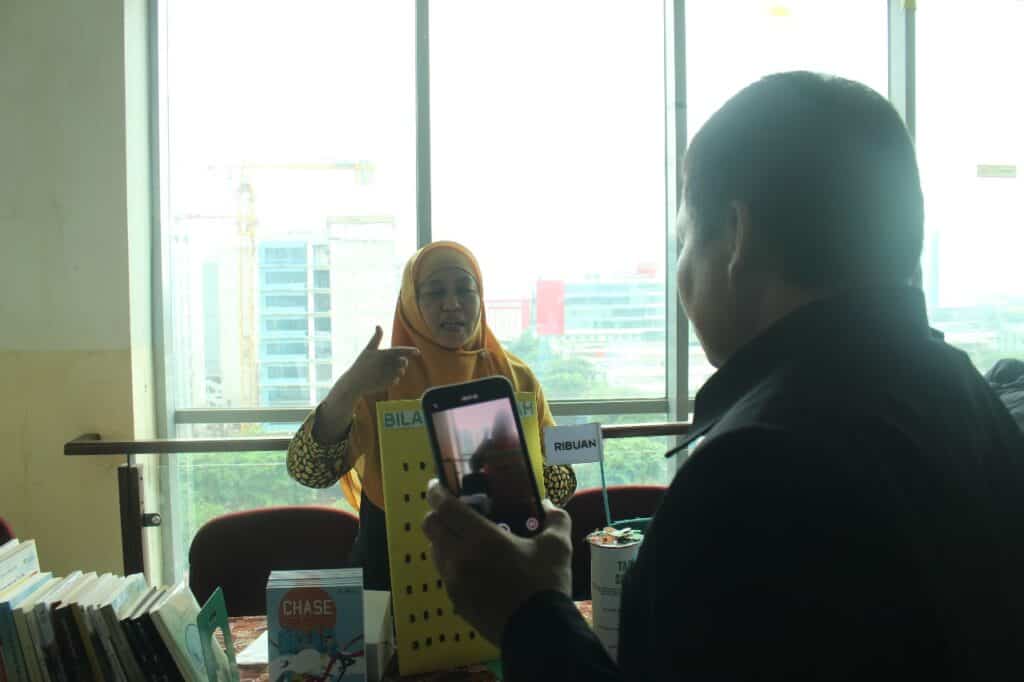
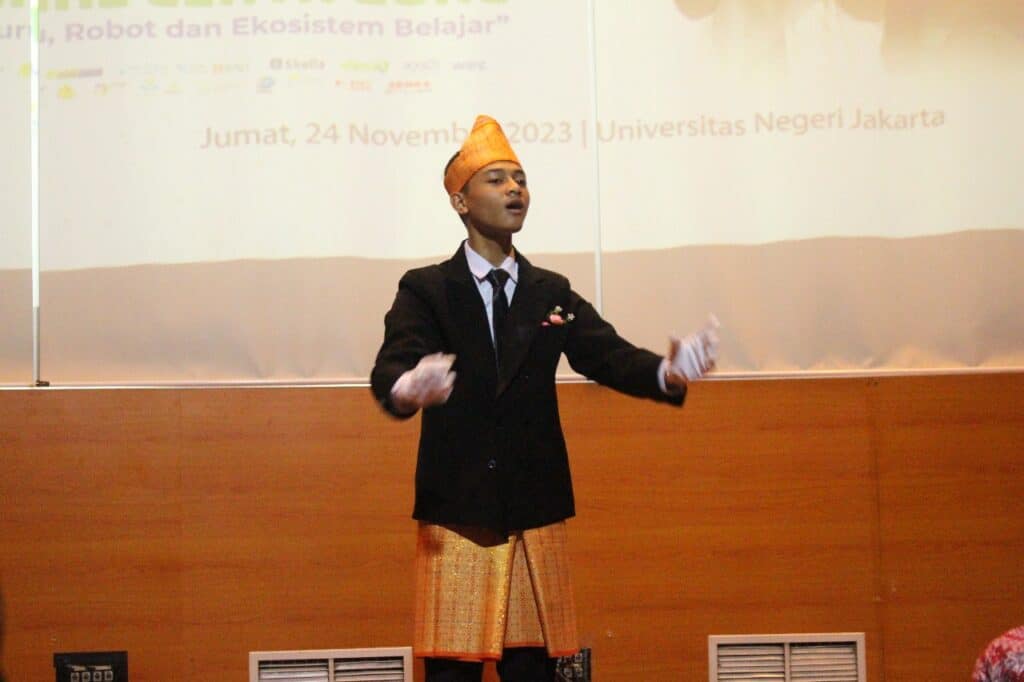
According to Rina Fatimah, a teacher needs to have sufficient knowledge to integrate technology.
“Teachers, as leaders in the learning process, need to have adequate skills and knowledge to integrate technology into their teaching,” said Rina.
During Eduaction Fest 2023, the Human Development Institute (LPI) of Dompet Dhuafa received an ISO Certification from PT SAI Global. This certification is a testament to LPI’s commitment to maintaining quality and standards in education development in Indonesia.
Baca juga: Guru Agustia, Alumni SLI Dompet Dhuafa Bangun Kampung Halaman Melalui ‘Sikola Bajalan’
UNJ’s Rector mentioned that the educational challenges in the AI and robotics era have an impact on an increasingly competitive, complex, unpredictable, and risky world.
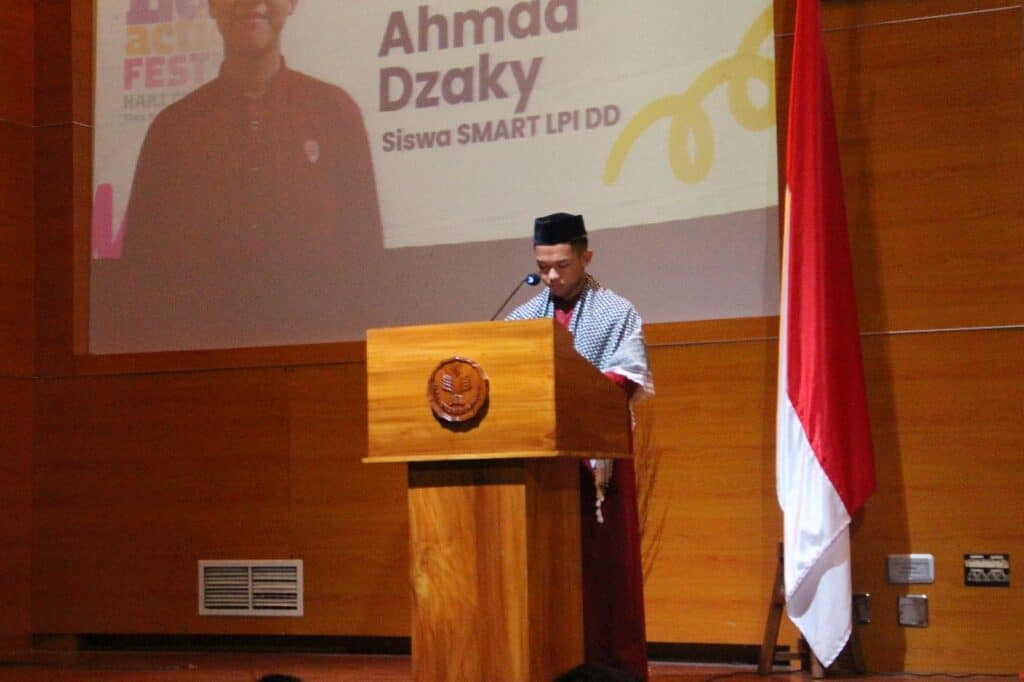
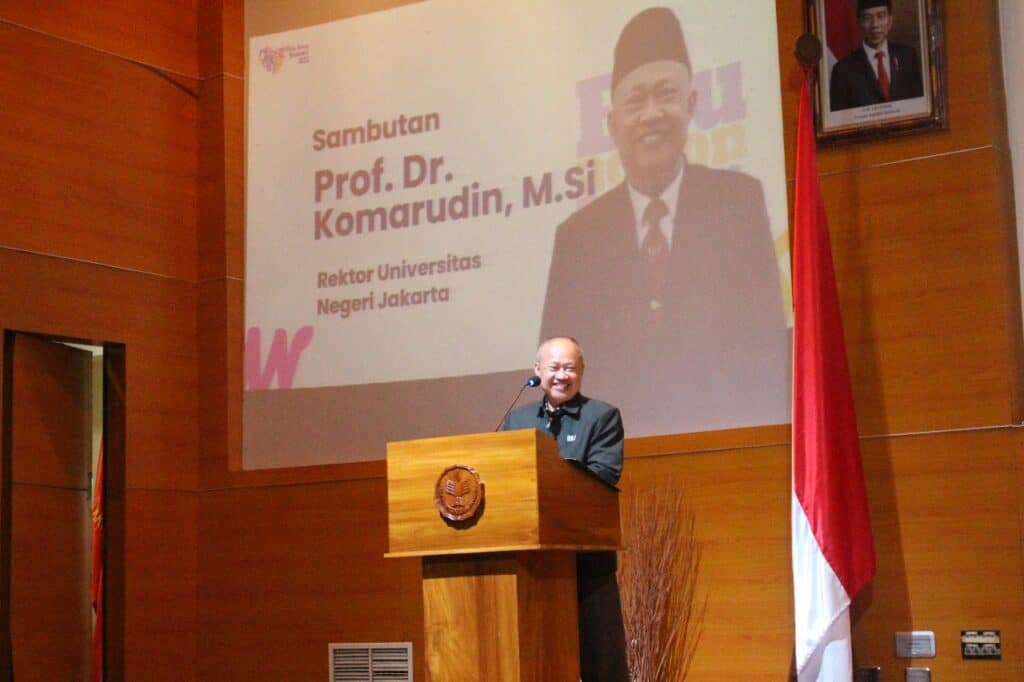
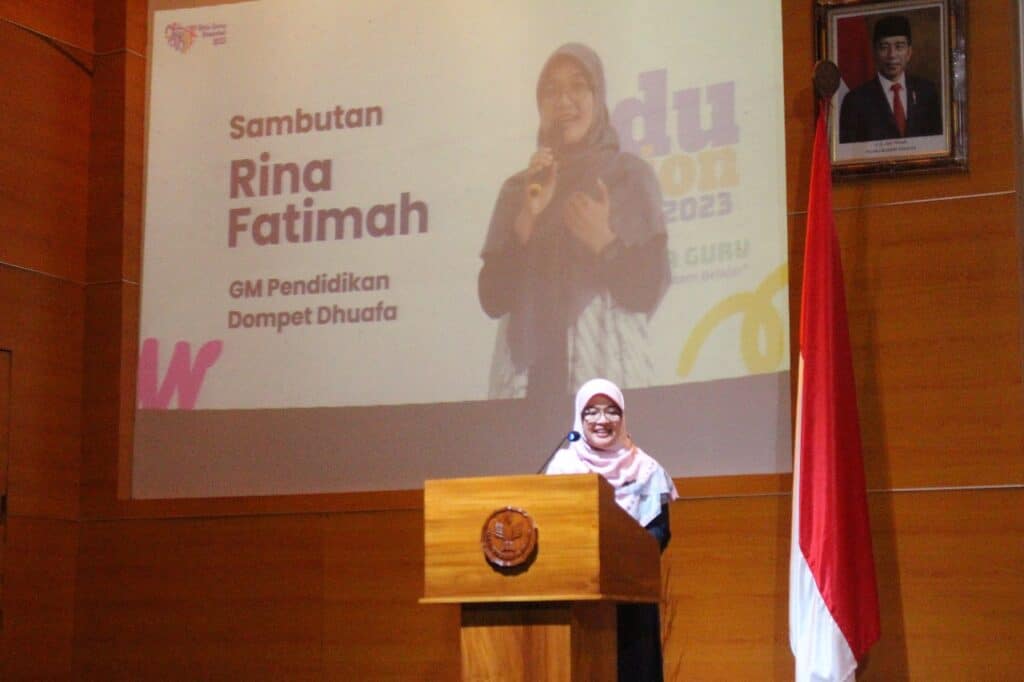
“The educational challenges in the AI and robotics era, the massive development of AI, and robotics that reach the entire social system and change the social order of education to be faster. Indonesia needs a proper benchmark in formulating policy directions in the AI and robotics era,” said Komarudin.
On Love for Teachers Day, an educational workshop titled “Strengthening Teacher Competencies in the AI and Robotics Era: Government Policy Directions” was held. The event was attended by Robinson Situmorang, a Professor in Learning Design; Devlin Hazrian Saleh, CEO of SKOLLA; and Agung Pardini, an Education Observer. The event was moderated by Dirgantara Wicaksono, a Doctor in Educational Technology.
Baca juga: Pembekalan Fasilitator POP Sekolah Guru Indonesia di Yogyakarta
This workshop was organized to encourage teachers to integrate technology, including robotics, artificial intelligence, and other technologies, into the learning process to improve teaching and learning quality.
Robinson Situmorang emphasized that real-life learning is far more beneficial than relying too heavily on technology. He advised not to be too obsessed with technology.
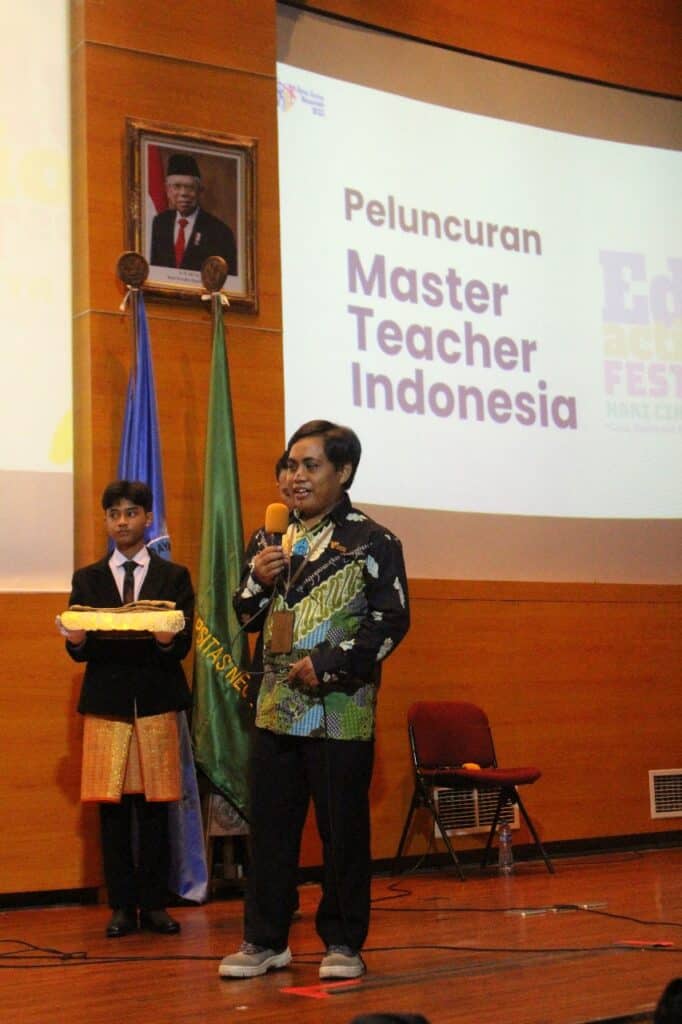
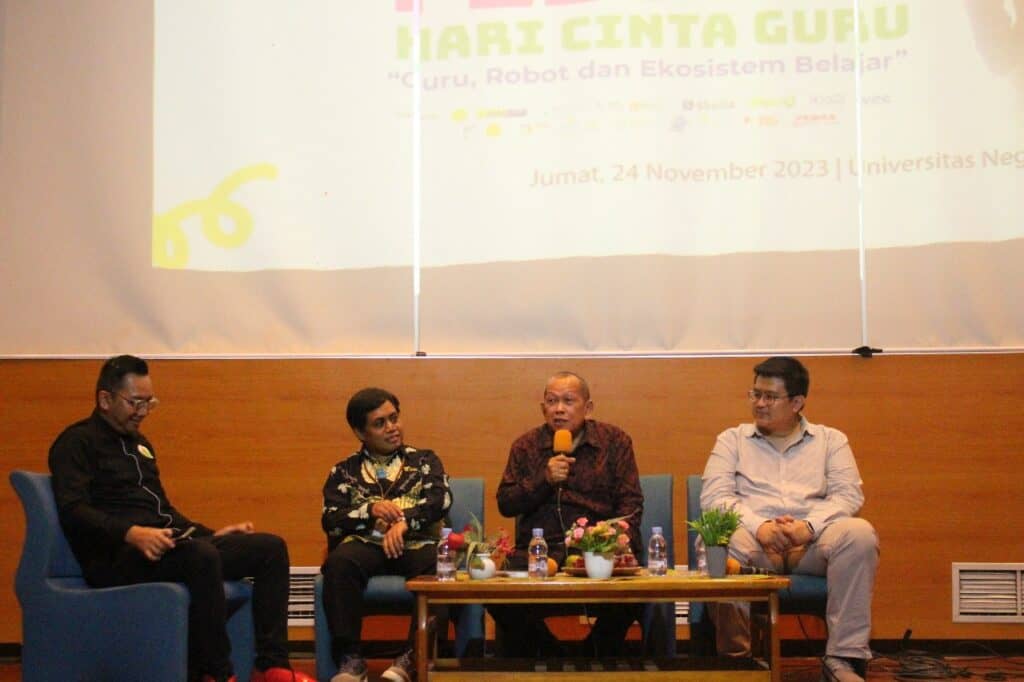
“Never change the purpose of the curriculum; what can be changed is the strategy towards the goal. Real learning is better than learning through technology. Don’t be too obsessed with technology; in education, technology is a tool, not a target,” said Robinson Situmorang at the event.
Devlin Hazrian explained that the presence of technology provides educational equality, both in cities and remote areas. He emphasized that the use of technology can enhance exploratory capabilities.
“SKOLLA introduces technology in education, learning using 3D animations, and 4D experiences with augmented reality and virtual reality. With technology, there is educational equality both in cities and in remote areas. The use of technology can enhance exploratory capabilities, one of which we present in several museums, so that visiting students can learn more deeply about historical objects through the technology we apply,” said Devlin.
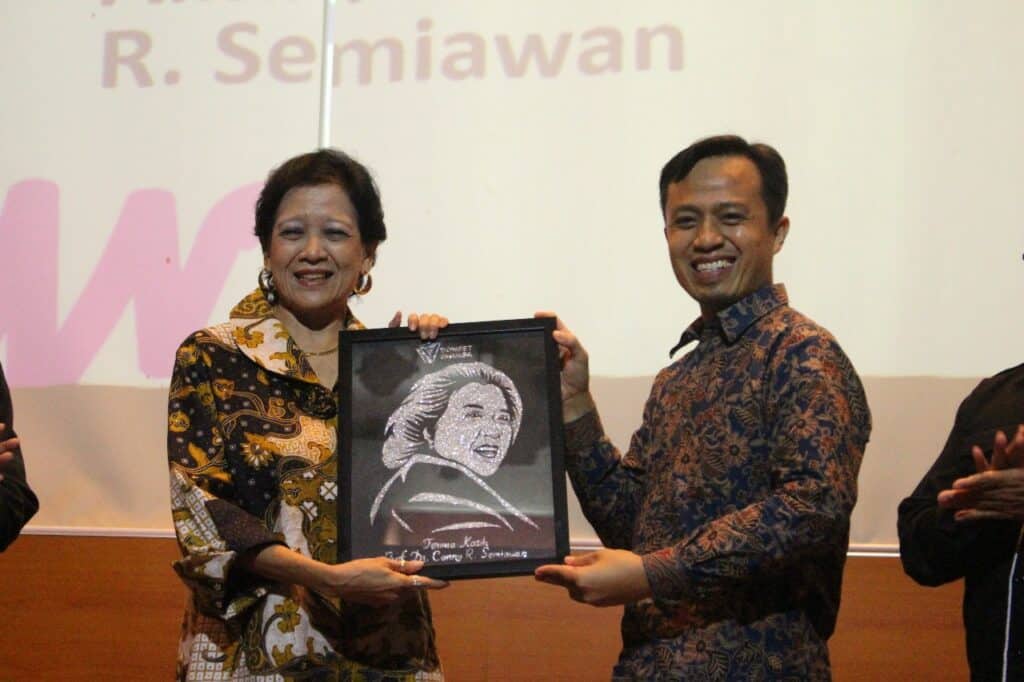
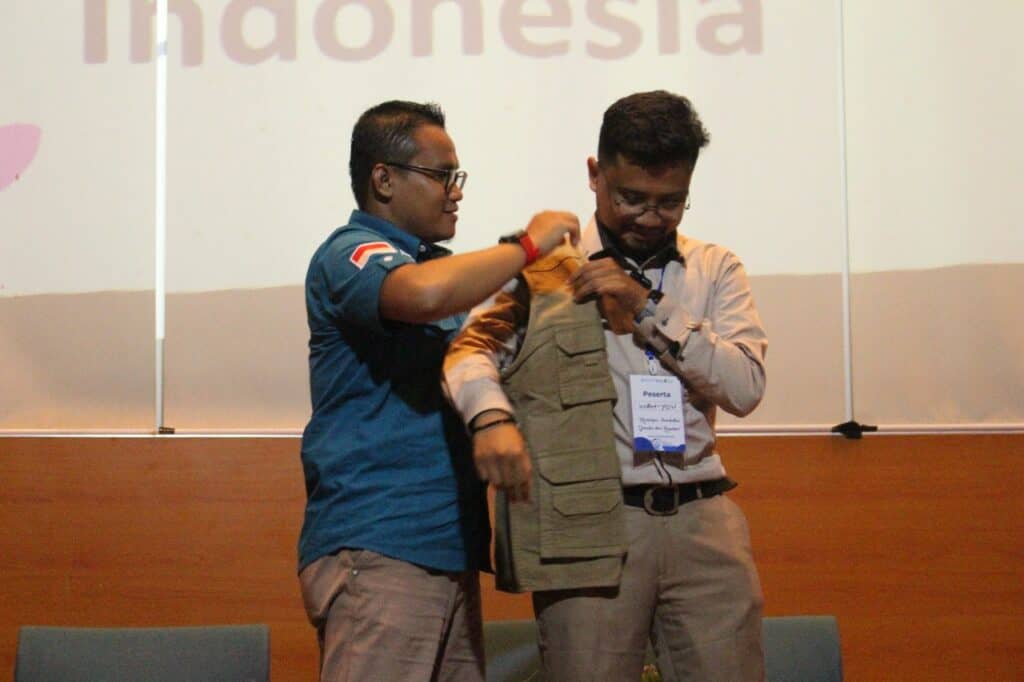
Additionally, Agung Pardini said, “Functional education is how we care for the traditional intellectual gene pool in managing the potential of local excellence and efforts to maintain community ownership of production assets. Losing local wisdom is a threat to greater poverty emergence. Through regional programs, Dompet Dhuafa develops a functional education approach driven by youth leadership to preserve local wisdom.”
Dirgantara Wicaksono stated that education is not only the responsibility of teachers but also involves parents, students, educational institutions, and the government.
“At the education workshop, IKA UNJ and LPI DD emphasized the importance of strengthening the sustainable education ecosystem and collaboration so that policies can favor teachers in creating an optimal learning environment,” he concluded. (Dompet Dhuafa/Syafira)



